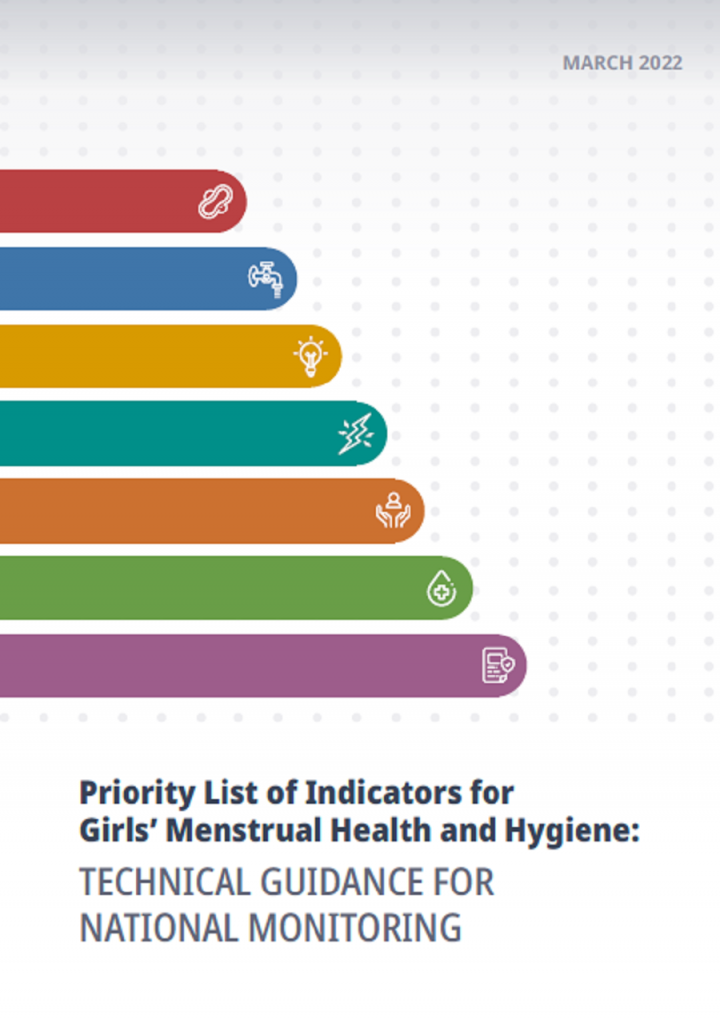Priority List of Indicators for Girls’ Menstrual Health and Hygiene: TECHNICAL GUIDANCE FOR NATIONAL MONITORING Global MHH Monitoring Group (2022)
There is growing global recognition of menstrual health and hygiene (MHH) as an important health, education, rights, and gender equality issue. As efforts to support MHH gain momentum globally, the lack of adequate validated indicators with related measures is a critical barrier to progress. At national level, the absence of standardized indicators and related measures limits understanding MHH circumstances across populations and over time. It also impedes the evaluation of policies and programs designed to change them.
A lack of standardized indicators curtails efforts to set and assess progress against targets that support MHH, unify approaches, and hold governments and service providers to account. To monitor the main domains of MHH, indicators and measures most needed are those aligned to key sectors, including Health [sexual and reproductive health (SRH) and psychosocial health], Education, Gender, and Water, Sanitation, and Hygiene (WASH). With the exception of recent efforts by the The WHO/UNICEF Joint Monitoring Programme for Water Supply, Sanitation and Hygiene (JMP) to include MHH in WASH monitoring, standardized MHH-related indicators have yet to be incorporated into these key sectoral areas for national level monitoring in most countries, despite the potential influence of menstruation on the respective sectoral outcomes, including their contribution to reaching certain Sustainable Development Goal (SDG) targets.
To support countries to monitor progress on MHH for adolescent girls in and out of school, a global collaboration of MHH experts worked together with key stakeholders and leaders from four exemplar countries to develop a short list of priority indicators (the short list). These indicators monitor MHH across priority domains and are intended to enable comparability across countries and over time.
Bibliographic information
Global MHH Monitoring Group (2022). Priority List of Indicators for Girls’ Menstrual Health and Hygiene: TECHNICAL GUIDANCE FOR NATIONAL MONITORING Columbia University New York
Filter / Tags
EnglishMenstrual Health and Hygiene (MHH)
Downloads
Priority List of Indicators for Girls’ Menstrual Health and Hygiene: TECHNICAL GUIDANCE FOR NATIONAL MONITORING
Type: application/pdf
Size: 1.81 MB

